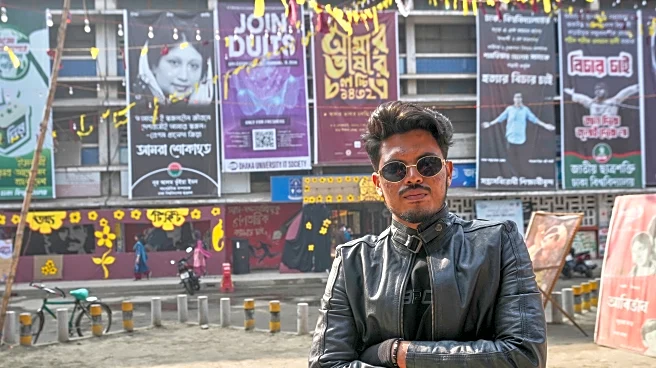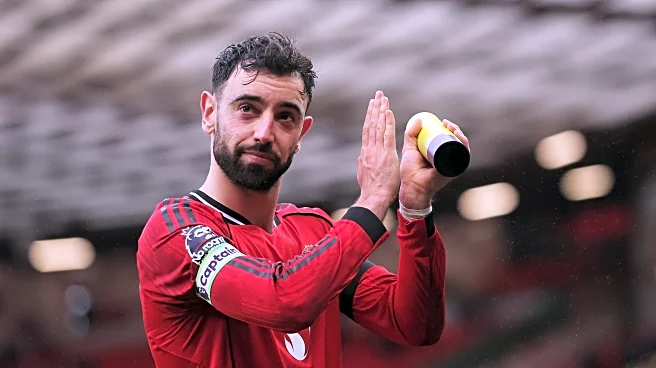What's Happening?
Madeleine Beekman, a professor emerita of evolutionary biology and behavioral ecology, presents a new theory in her book 'The Origin of Language,' suggesting that the need for child-rearing played a crucial role in the development of human language. Historically, theories of evolution have focused on male-centric activities such as hunting and toolmaking. Beekman shifts the focus to the prehistoric necessity of caring for vulnerable offspring, arguing that this need may have driven early humans to develop language as a tool for cooperation and communication. Her theory posits that the biological changes in humans, such as elongated vocal cords and larger brains, facilitated the creation of language to meet the demands of child-rearing.
Why It's Important?
Beekman's theory challenges traditional views on human evolution by emphasizing the role of familial care and cooperation in the development of language. This perspective highlights the importance of interdependence and communal child-rearing in shaping human society. The implications of this theory extend beyond academic discourse, suggesting that modern parenting practices, which are often isolated, may benefit from a return to more cooperative methods. Understanding the origins of language through the lens of child-rearing could lead to a reevaluation of societal norms around parenting and community support.
What's Next?
The theory presented by Beekman may inspire further research into the role of parenting in human evolution, potentially influencing both academic studies and public policy on child-rearing practices. Scholars and policymakers might explore ways to integrate communal support systems into modern parenting, drawing on historical insights to improve societal well-being. Additionally, this perspective could lead to interdisciplinary collaborations between evolutionary biology, anthropology, and psychology to deepen the understanding of human development.
Beyond the Headlines
Beekman's theory invites a broader discussion on the ethical and cultural dimensions of parenting and community support. It challenges the notion of isolated parenting as a modern norm and encourages a reconsideration of collective child-rearing as a fundamental aspect of human evolution. This could lead to cultural shifts in how societies view and support families, emphasizing the benefits of cooperation and shared responsibilities.











